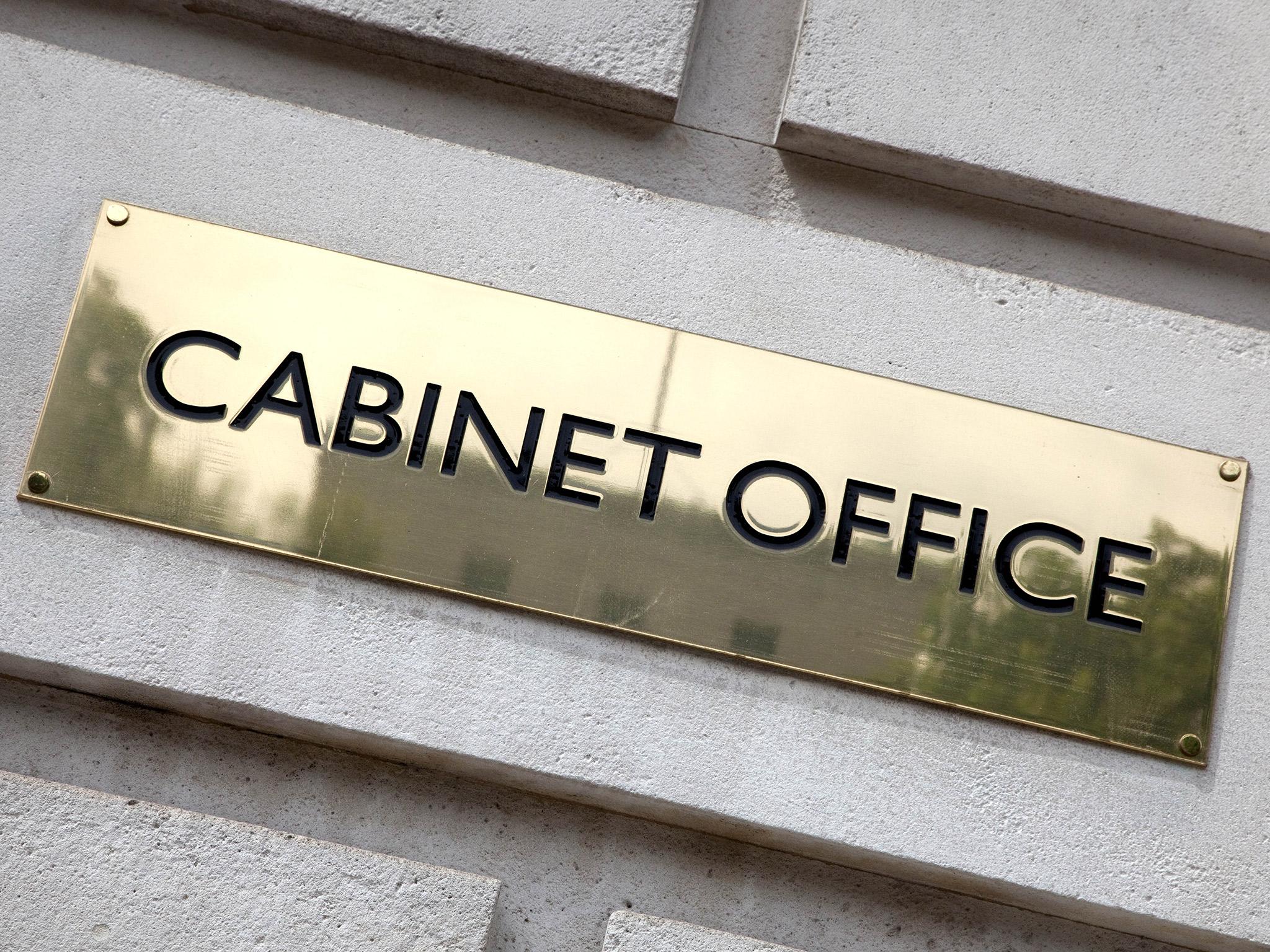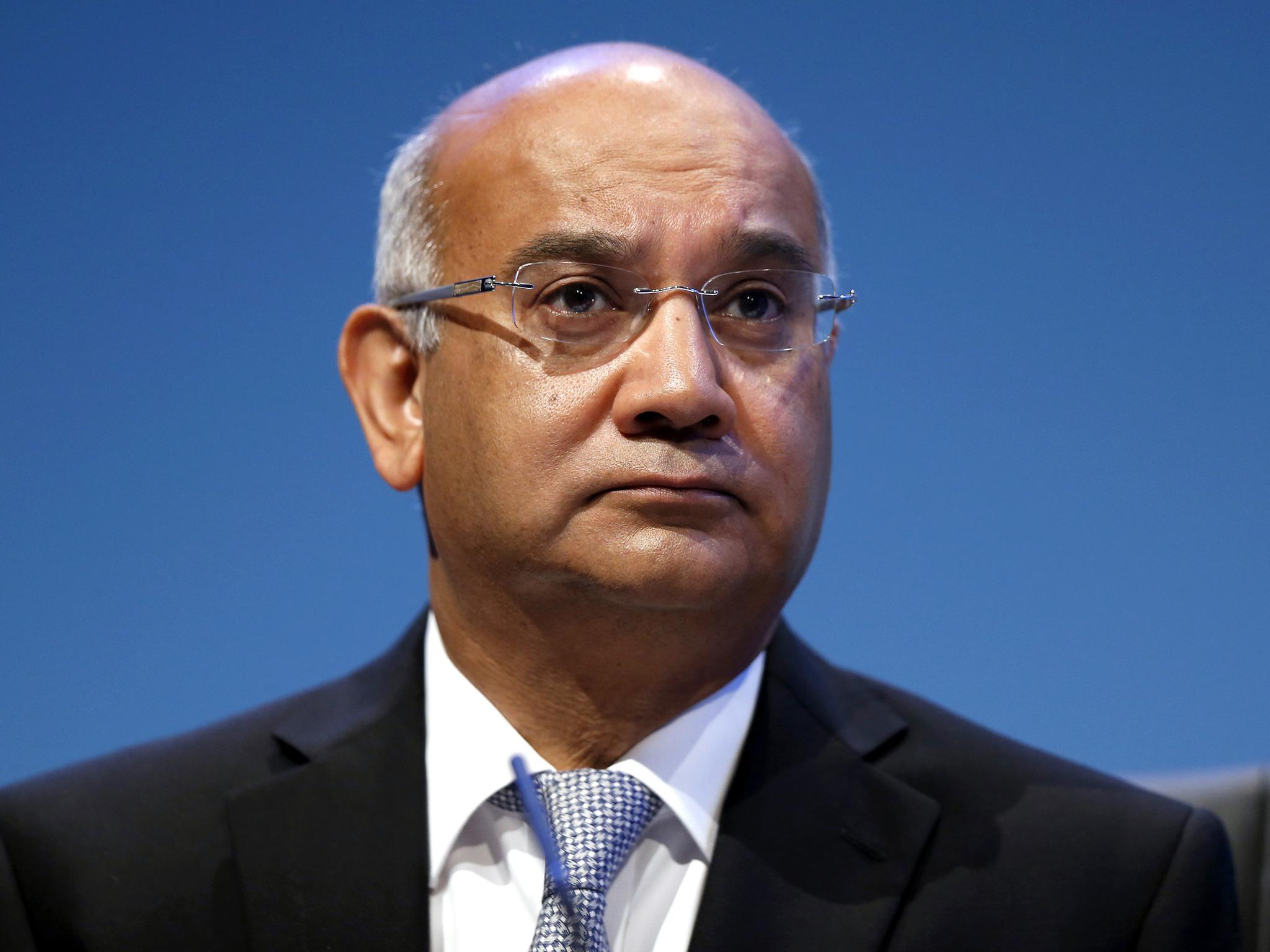Cabinet Office has least diverse workforce of all ministerial departments, new report reveals
Only six per cent of its workforce are from black, Asian, and ethnic minority backgrounds

Your support helps us to tell the story
From reproductive rights to climate change to Big Tech, The Independent is on the ground when the story is developing. Whether it's investigating the financials of Elon Musk's pro-Trump PAC or producing our latest documentary, 'The A Word', which shines a light on the American women fighting for reproductive rights, we know how important it is to parse out the facts from the messaging.
At such a critical moment in US history, we need reporters on the ground. Your donation allows us to keep sending journalists to speak to both sides of the story.
The Independent is trusted by Americans across the entire political spectrum. And unlike many other quality news outlets, we choose not to lock Americans out of our reporting and analysis with paywalls. We believe quality journalism should be available to everyone, paid for by those who can afford it.
Your support makes all the difference.The Cabinet Office has the least diverse workforce of all ministerial departments, with only six per cent from black, Asian, and ethnic minority backgrounds, a new report into the lack of diversity in the public sector reveals.
The findings, compiled by youth employment charity Elevation Networks, compare unfavourably with the population as a whole – the last UK census in 2011 showed that 13 per cent of people identified as BAME.
The Ministry of Defence and its agencies, the report adds, employ 53,100 members of staff. Less than four per cent, or 1,720, are from ethnic backgrounds and only 13 out of 46 governmental departments have any BAME executives or ministers.
Despite 20 BAME candidates being shortlisted, none of the 45 Police and Crime Commissioners in England and Wales, elected in November 2012, are from an ethnic minority background.
The report’s authors also claim that the public sector generally is lagging behind when it comes to diversity. Analysing over 500 public sector organisations, the charity found that 91 – or, just over three per cent – of 2,623 public sector senior leaders surveyed are from BAME backgrounds.
Keith Vaz, chair of the Commons Home Affairs Select Committee and Labour MP, said to The Independent the research “shines a necessary spotlight on those departments, bodies and agencies that fail to represent the UK population – either in terms of general organisational make up, or at senior level”.
He added: “Diversity in any sector or field is fundamental – first and foremost in terms of equality and representation, but also because neglecting to capitalise on the diversity of talent is a move towards failure.
“The public sector is now lagging behind the private sector in terms of diversity, and this isn’t acceptable. Public services, set up to serve the needs of the nation and staffed with individuals paid with taxpayer’s money, must be representative of the public, and indeed the specific communities they serve.”
The report adds that while some clear progress has been made in areas of the public sector, many organisations are “still hugely under-representative” of UK society.
“The clear lack of ethnic minority representation – and in particular the lack of BAME leaders – in the public sector highlights a diversity problem on a national scale,” said Barbara Kasumu, co-founder of Elevation Networks.
She added: “If the public sector is to truly reflect the needs of the communities which it serves then urgent action is needed to ensure that BAME talent is represented at every level of the profession.
“The public sector must implement targeted recruitment and outreach activities to address this imbalance in the long-term and tap in to the full range of talent in the UK. Such initiatives do not need to be difficult but they are absolutely essential.”

Last year a Government commissioned report found black and Asian civil servants faced routine discrimination by the "old boys network" running Whitehall.
The study, commissioned by the Cabinet Secretary Jeremy Heywood, found ethnic minority staff got lower marks in performance reviews, did not always have equal access to promotion, and didn't feel like they worked for an organisation that was "open, fair and inclusive".
Even black and Asian civil servants who make it to the senior grades felt it was largely because "their face did fit" the mould in other ways - like attending Oxbridge or having middle-class parents.
"The senior Civil Service is looking like for like," one official said. "If you are black, Asian or minority ethnic (Bame) and working class, you are in trouble."
The report found worrying discrepancies in performance management reviews.
In one department, 20 per cent of whites "exceeded expectations" while 7.7 per cent fell into the bottom category of must improve. For ethnic minority staff, only 14.1 per cent "exceeded expectations" while 12 per cent were in the must improve category.
In interviews, civil servants said open discrimination and borderline racist abuse was still a factor of life in some parts of Whitehall. "I heard a manager say to a Muslim member of staff, 'here comes Osama bin Laden'.
"I felt really guilty that I didn't speak up. Even as an Irish man, I get jokes, that frankly, in today's day and age, are shocking."
Another said: "It can feel like an old boys network. As an African woman I don't feel like I have the confidence to be myself - even down to how I dress. I'm always receiving derogatory comments about my African prints (dress)."
Join our commenting forum
Join thought-provoking conversations, follow other Independent readers and see their replies
Comments